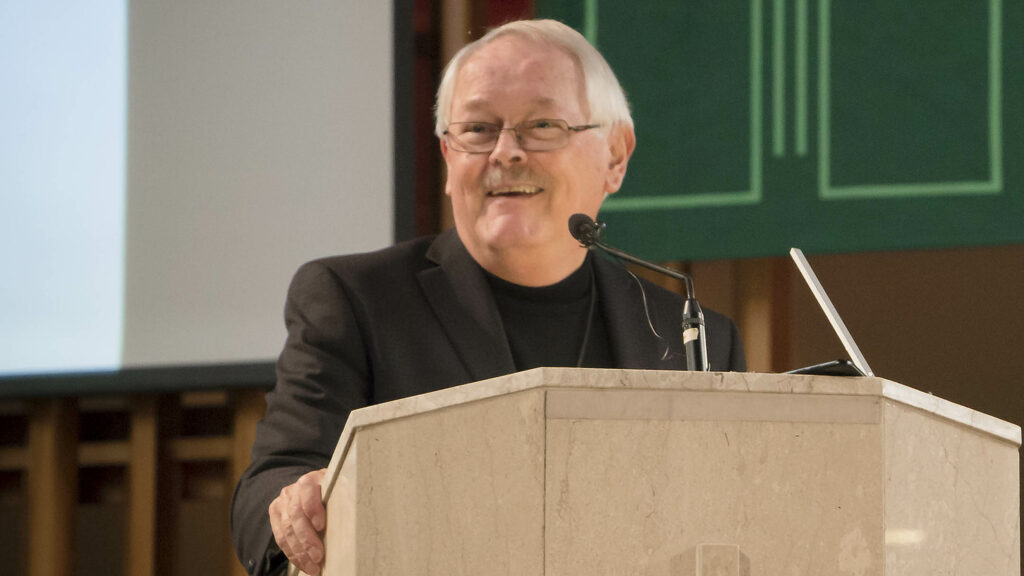It’s hard for a child to have to go to bed in the middle of an evening when the rest of the family is still celebrating. Nobody wants to go to bed while everyone else is still up. No one wants to miss out on life.
Remember how as a child, tired and unable to keep your eyes open, you still struggled against anyone who would try to put you to bed. Exhausted or not, you didn’t want to miss anything. You didn’t want to leave and go to sleep while so much life was going on.
We never really outgrow that. That resistance is congenital and still haunts us on our deathbeds.
One of our more painful anxieties is triggered by a sense that we are forever missing out on something. This is also one of our major fears about dying. For most people, the heaviness and darkness of dying come not so much from a fear of what they might meet in the next life, judgment and punishment, but from a fear of annihilation.
Moreover, the fear here is not so much that their personal identity will be snuffed out (though that is a real fear) but rather that they will be taken away from all the life of which they have been part. The sadness lies in the having to let go, in knowing that life will now go on without us, of being taken off to bed while the party continues. And, this is deep inside us, so deep, that we find it difficult to imagine how the world can even go on without us.
However, this is not a sign that there is something wrong with us, some neurosis that needs fixing or some moral or religious issue that needs attention. It’s the human condition, pure and simple, and God is the architect of that. In short, we’re built to be part of a fabric, not single threads content in their isolation.
I was 23 years old when I watched my dad die in a hospital room. He was still young, sixty two years old, and ideally should have had a number of years still ahead of him. But, he was dying, he knew it, and despite a faith that gave him some comfort, was deeply sad about it. What he struggled with in his dying was not with some fear of the afterlife or some amends he still needed to make in this life. None of that. There was no unfinished business with God, nor religious and moral issues still to mend. Nor were there unhealthy fears of the afterlife. His only unfinished business had to do with this life, and what he would now miss out on in terms of (figuratively) being put to bed early while the party was still going on. In addition, for him, the party was in full swing.
His adult children were just beginning to establish their lives and give him grandchildren, and the younger half of his family were actively preparing to enter into their adult lives. He wasn’t going to be around to see how all of this turned out and he wasn’t going to be around to see most of his grandchildren. More important still, he had a wife, a soulmate, whom he would be leaving. It wasn’t a good evening to be sent to bed early.
Beyond all this, he still had his own siblings, neighbors, friends, a parish, civic involvements, sports teams, and countless other life-giving connections, and he was aware, not without huge heartache, that these were all about to end, at least on this side of eternity.
Why shouldn’t he have been sad? Indeed, why shouldn’t any of us be sad whenever we are facing a death of any kind, when we are being put to bed while the rest of life is still going on?
We are constitutively communitarian. As God himself said when he created the human family, it is not good for anyone to be alone. We are meant to be part of a family and a community, part of the fabric of life, and a fabric is made up of multiple threads. Thus, it’s understandably saddening whenever our single, fragile, lonely thread is being pulled away from the rest of the fabric. No wonder little children don’t want to be put to bed while everyone else is still carrying on with the evening.
Moreover, this isn’t just true for the sadness we experience when we face our deaths. The same dynamic is operative whenever we undergo the various mini-deaths that beset us as we age, lose our health, retire, get fired from jobs, lose people we love, lose marriages, are geographically dislocated, or in any other way are pushed out of the mainstream of life towards the margins.
So it can be helpful to know that nothing is wrong here. Dying is hard. Letting go is hard. Being pushed aside is hard. Disappearing from life is particularly hard. That’s why little children don’t like being put to bed.
-Rev. Ron Rolheiser, O.M.I. is president of the Oblate School of Theology in San Antonio, Texas. Before taking his current position he taught for many years at Newman Theological College.

